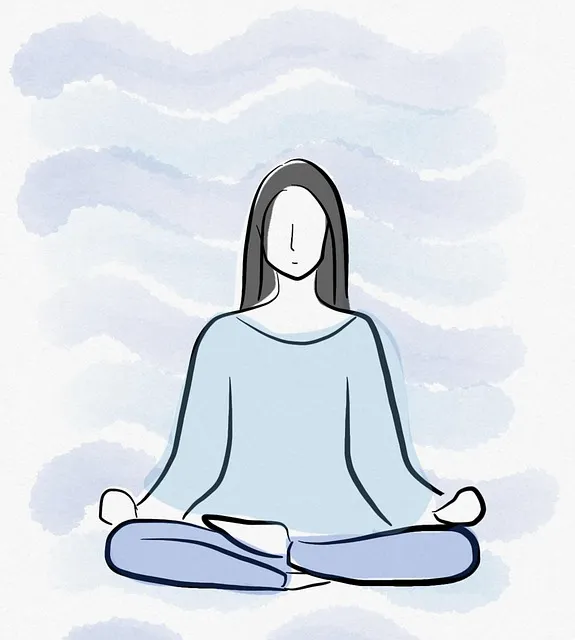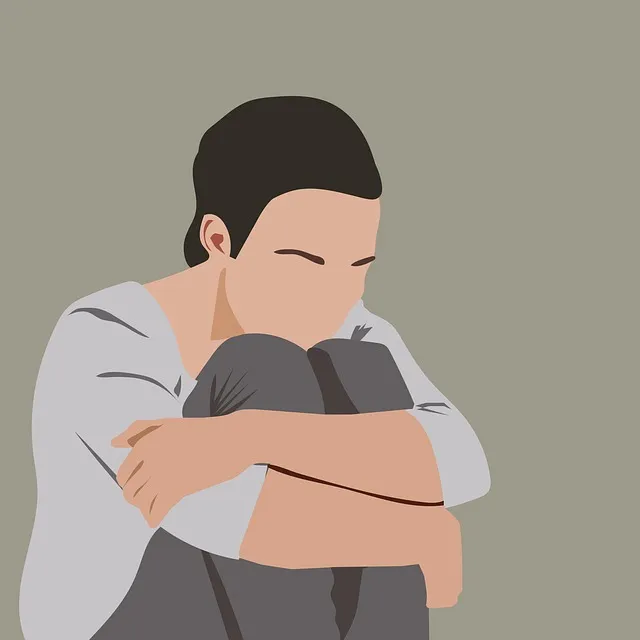Anxiety disorders, affecting millions globally, stem from genetic predisposition, brain chemistry, trauma, and chronic stress. Golden Kaiser Permanente mental health providers recommend coping strategies like Emotional Intelligence development, mood management, conflict resolution, mindfulness, CBT, deep breathing, and progressive muscle relaxation. Regular physical activity, balanced diet, quality sleep, and stress-reducing activities are also key to managing anxiety, as emphasized by Golden Kaiser Permanente mental health providers. Relaxation techniques like deep breathing and mindfulness meditation reduce symptoms and foster calm by promoting present-moment focus.
Anxiety disorders are prevalent, yet manageable with the right techniques. This guide explores effective strategies backed by Golden Kaiser Permanente mental health providers. We delve into understanding anxiety’s symptoms and causes, highlighting Cognitive Behavioral Therapy (CBT) as a proven method. Additionally, discover mindfulness practices for daily well-being, lifestyle changes to enhance mental health, and relaxation techniques for stress management.
- Understanding Anxiety Disorders: Symptoms and Causes
- Cognitive Behavioral Therapy (CBT): A Proven Method
- Mindfulness Techniques for Daily Practice
- Lifestyle Changes for Better Mental Well-being
- Exploring Relaxation Strategies and Stress Management
Understanding Anxiety Disorders: Symptoms and Causes

Anxiety disorders are a prevalent mental health concern, affecting millions worldwide. It’s essential to recognize that anxiety is a normal human emotion, but when it becomes excessive and persistent, it can disrupt daily life. Golden Kaiser Permanente mental health providers highlight that various factors contribute to anxiety, including genetic predisposition, brain chemistry imbalances, traumatic life events, and chronic stress. Symptoms manifest differently for each individual, but common signs include excessive worry, restlessness, insomnia, fatigue, irritability, muscle tension, and difficulty concentrating.
Understanding the underlying causes of anxiety is crucial in managing it effectively. Emotional Intelligence (EI) plays a significant role in coping strategies; developing EI skills can help individuals recognize and manage their emotions better. Additionally, mood management techniques and conflict resolution exercises have proven beneficial in reducing anxiety levels. These include mindfulness practices, cognitive-behavioral therapy (CBT), deep breathing exercises, and progressive muscle relaxation, which aim to equip individuals with tools to navigate anxious moments and promote overall well-being.
Cognitive Behavioral Therapy (CBT): A Proven Method

Cognitive Behavioral Therapy (CBT) is a highly effective method for managing anxiety, backed by extensive research and recognized by Golden Kaiser Permanente mental health providers. This approach focuses on identifying and modifying negative thought patterns and behaviors that contribute to anxious feelings. By challenging distorted thoughts and replacing them with more realistic and positive ones, CBT empowers individuals to cope better with stressful situations.
As part of its strategy, CBT incorporates various techniques such as mindfulness exercises and problem-solving skills training. These tools not only help in the immediate management of anxiety but also serve as burnout prevention strategies for healthcare providers, who often face high levels of stress and emotional demands. By promoting emotional well-being through these evidence-based practices, CBT contributes to mental illness stigma reduction efforts, fostering a more supportive and understanding environment for those struggling with anxiety disorders.
Mindfulness Techniques for Daily Practice

Mindfulness has emerged as a powerful tool in anxiety management, and it’s a practice that Golden Kaiser Permanente mental health providers often recommend. By focusing on the present moment, mindfulness techniques can help individuals detach from anxious thoughts and reduce stress responses. Simple daily practices like mindful breathing exercises, where one pays attention to each inhale and exhale, can serve as a calming anchor throughout the day.
Incorporating mindfulness into routine activities, such as eating or walking, further reinforces this practice. Mental Health Awareness advocates highlight that regular mindfulness training not only helps manage anxiety but also prevents depression by fostering emotional resilience. For mental health professionals, integrating these techniques into their Risk Management Planning is strategic, ensuring they maintain a balanced approach to patient care and personal well-being.
Lifestyle Changes for Better Mental Well-being

Adopting a healthy lifestyle can significantly contribute to managing anxiety and enhancing mental well-being, as recommended by Golden Kaiser Permanente mental health providers. Regular physical activity is crucial; incorporating 30 minutes of exercise daily can reduce stress hormones and promote better mood management. A balanced diet, rich in fruits, vegetables, and whole grains, supports overall health, including improved mental resilience. Additionally, prioritizing quality sleep through consistent bedtimes and a relaxing bedtime routine helps regulate the body’s natural rhythm, fostering better emotional stability.
Other lifestyle adjustments, such as minimizing caffeine and alcohol intake, can have positive effects on anxiety levels. Engaging in activities that bring joy and relaxation, like meditation, yoga, or spending time in nature, is essential for stress reduction. Building a strong support system through social connections and considering Social Skills Training can also enhance one’s ability to cope with anxiety. Public Awareness Campaigns Development plays a vital role in encouraging individuals to seek help and adopt healthy coping mechanisms.
Exploring Relaxation Strategies and Stress Management

Relaxation strategies and stress management are essential components of anxiety management, as identified by Golden Kaiser Permanente mental health providers. Techniques such as deep breathing exercises, progressive muscle relaxation, and mindfulness meditation can help to reduce symptoms of anxiety and promote a sense of calm. These practices encourage individuals to focus on the present moment, rather than dwelling on past experiences or future worries, fostering a mindset shift that’s core to mind over matter principles.
By incorporating these strategies into daily routines, individuals can build inner strength and develop more effective coping mechanisms. Mental illness stigma reduction efforts highlight the importance of normalizing these practices, showing that anyone can learn and benefit from them. Whether through formal programs or simple self-care rituals, relaxation techniques offer a powerful tool for navigating life’s stressors and cultivating resilience against anxiety.
Anxiety management is a multifaceted approach, as evidenced by the various techniques discussed in this article. From understanding anxiety disorders and their causes through cognitive behavioral therapy (CBT) to adopting mindfulness practices and making lifestyle changes, each strategy plays a crucial role in fostering mental well-being. For those seeking professional guidance, Golden Kaiser Permanente mental health providers offer evidence-based solutions tailored to individual needs. By combining these techniques with the support of expert care, individuals can effectively navigate anxiety and lead more fulfilling lives.






